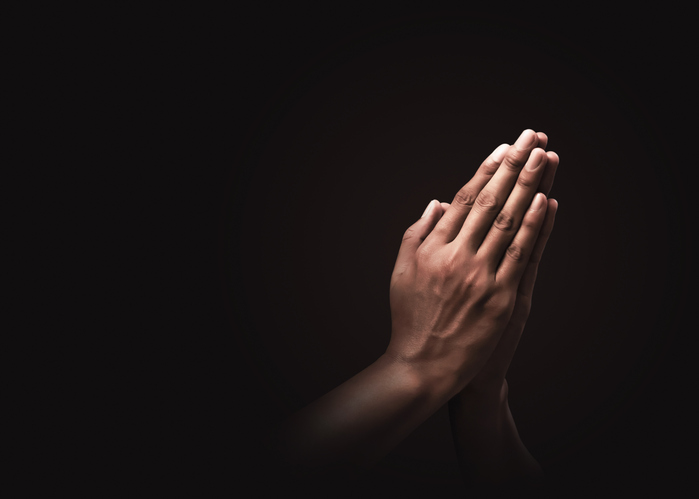A STRANGER recently emailed me in a state of distress. She had been on a spiritual journey, she wrote, but all her beliefs were now at risk having watched one of my documentaries. The experience had left her shattered, and she asked if she could put some urgent questions to me. This heartfelt request, sent a few minutes after midnight on a Saturday, was chased by another one sent just before six am on the Sunday. It was clear to me that only one of us had been sleeping in the interim. Her tone was desperate, and even though I didn’t know her, all too familiar.
Nineteen years ago, I made a TV documentary investigating allegations of sexual abuse and murder against the Indian spiritual guru, Sai Baba, the most powerful godman of his day who commanded some 30 million followers globally. The film entitled Secret Swami went out on BBC2 in the U.K. but also aired internationally via BBC World. The moment it hit the airwaves, it unleashed a storm. Protests immediately broke out in countries with large Indian diaspora communities such as Britain, Canada, Australia, Fiji, Mauritius, South Africa and Trinidad as well as in Sri Lanka, home to a high number of Sai Baba devotees.
It was also the moment that The Emails started.
Row of Crows
Hundreds of them. Perhaps thousands. The truth is, I never counted. All I knew is that they would be waiting in my inbox every day I turned up for work like a row of crows balefully regarding me. Thankfully, most of the feedback was positive and appreciative. A high proportion also contained troubling revelations of further abuse within the Sai Baba community as well as in other spiritual sects. At the same time, there was a significant minority that was highly critical and upset, plus a tiny subsection which was intentionally offensive, laden with bile and ill wishes. And then there were the death threats.
Nowadays, death threats are two a penny on social media, venomously dished out by keyboard warriors hiding behind a mask of anonymity but back in the early Noughties, not so much. The problem was, I didn’t know what each email had in store for me until I opened it. Of course, by then, it was often too late.
Trying to emulate my childhood heroes, JR Tolkien and CS Lewis, who famously penned replies to their legions of fans, I stoically made it my duty to answer every single email even the negative ones, although needless to say not the ones containing insults or death threats. Email was in its infancy back then and inboxes weren’t as rammed with junk mail or commercial subscriptions as they are today. An email still had a certain cachet; not quite a letter but almost.
Moreover, there was a tone to much of the correspondence that moved me. Leaving aside the straight-out expressions of appreciation or criticism, the rest were mostly written by people who had been or still were Sai Baba followers or in other spiritual communities. There was therefore, a deeply emotional register to these emails, which occasionally veered into distress or desperation, because of how the documentary had affected them personally. Many contained either moving pleas for me to investigate other abusive situations or passionate requests for me to reconsider my investigation based on proof of Sai Baba’s saintliness. No matter what, I respected their courage for reaching out to me. I also felt a sense of responsibility.
A few years down the line, though, and dealing with all those feelings was getting harder. Those ominous crows which showed up every morning had thinned down, sure, but they had far from disappeared from my life. I was still receiving a minimum of two to three emails per week about my Sai Baba documentary despite making numerous other programmes since. What’s more, after a scheduling decision back in 2004 to air the film in India around 3am had led to it being seen by virtually no one, word had clearly got out and the film was posted several times on YouTube unleashing a new stream of emails – as well as a new flood of pent-up emotions – from India, home to Sai Baba himself.
As a new wave of people wrote to me with the immediacy of having seen this film for the first time despite it airing on mainstream TV years earlier, I could deny it no longer. The emails were choking me.
Hard Decision
And so, in 2009 – a full five years after Secret Swami had first broadcast – I made the hard decision to stop responding to any further correspondence about it. I felt justified in this. I had left the BBC and was about to go back to university in preparation for a new career as a writer. I resolved to still read every single email I received out of respect, but to no longer answer as a rule, only as an exception.
Instead, I created a folder within the inbox of my non-BBC email. When the crows turned up, which they still did albeit in dwindling numbers, I simply stuffed them all in there. In my mind, the folder grew into the bottom drawer of a metal filing cabinet, one in which all those crows were still alive, their wings beating and flapping violently in a black whir of distress.
I had no desire to pull that drawer open anytime soon.
And for more than a decade I didn’t. In that timespan, the black crows dropped down to barely a handful each year and I got on with my life.
And then The Stranger got in touch.
Cautious Conversation
When her two emails landed in my inbox in rapid succession, my first response was to freeze. I found the feverishness of her response to my almost 20-year-old documentary disconcerting. Carefully placing the two quivering black crows into their virtual pen conferred instant relief. It was, therefore, irritating to feel a long dormant sense of responsibility bubble back into life over the next few days. Once again, I began to grudgingly appreciate the courage it must have taken for her to write to me. And so, I checked out the stranger’s bonafides online (investigative habits die hard) and once verified, took the two black crows out of their cage, re-read them and cautiously replied. I was sorry to hear she’d been so shaken and although busy, would be happy to answer a few key questions.
The questions that arrived were innocent and unguarded. I was moved by The Stranger’s credulity towards the world, her anguish upon finding the purity of Sai Baba possibly tarnished, and her earnest desire to find out the truth. I endeavoured to make my responses as tactful as possible, employing studiously neutral language to do so.
I described how there had been rumours circulating for years about Sai Baba’s sexual predations and the difficulty of having hard evidence in historical sexual abuse, having to rely on the patterns that emerged instead in the testimonies of victims. I talked about the other Indian males with family members still in Sai Baba’s ashram who I had interviewed about their own experiences of abuse but who hadn’t been included in the final cut because of their wish for anonymity; I emphasised how the suffering was made worse by the fact that many felt complicit in their own abuse through the exploitation of their belief in their guru’s divinity. And lastly, I talked about how it was entirely possible that Sai Baba was both a sexual abuser and a humanitarian; the two did not necessarily negate the other; and I gave her examples of public figures who had gone on to be unveiled as sexual predators.
Lastly, I wished her luck making her mind up based on her own instincts.
Do Facts Even Matter?
Did I think that she might come round to believing that Sai Baba had secretly preyed on adolescent and young male devotees while also performing vast feats of philanthropy for society’s most needy? Potentially. But I am not so naïve as to take that for granted anymore. Nineteen years ago when I was a gung-ho foreign correspondent, I genuinely believed that my BBC investigation would lead to most of Sai Baba’s followers abandoning him, but that clearly didn’t happen even if it benefitted countless individuals as evidenced by the majority of my emails.
Why? One reason is that neurologically, beliefs are extremely hard to change. According to the article, Why Facts Don’t Change Our Minds And Beliefs Are So Hard to Change, by Imed Bouchrika on the website www.research.com, scientists have discovered that sticking to one’s beliefs actually activates the brain’s pleasure centre. In other words, we are genetically designed to feel good about standing firm when our views are challenged.
Bouchrika also names a phenomenon called belief perseverance, which “refers to people’s tendencies to hold on to their initial beliefs even after they receive new information that contradicts or disaffirms the basis for those beliefs.” Confirmation bias, a person’s tendency toreject information that does not confirm their views or prejudices, may also play a big role in stopping people from seeing things objectively, he writes, and provide “justifications for decisions one has already made.”
And naturally, over the course of almost two decades I have also changed within myself. Human beings are not monoliths, we learn and evolve through our experience of living. These days, I practice Kundalini Yoga, an ancient yoga practice rooted in Shaktism and Tantric Yoga that dates to eighth century India. My fellow practitioners are some of the warmest, most spiritually curious people I’ve ever met and our WhatsApp group often pings with the diverse mystical interests they are pursuing, some of which I’ve never even heard of.
While the practice of Kundalini Yoga is more than enough for my needs, I have come to understand that there are increasing numbers of people these days who are engaged on spiritual quests to help them process past trauma or help guide them through the challenges of modern life or simply make sense of it, and in realising this, I have grown into a more compassionate and tolerant person.
Acceptance of Difference
After a short and pleasant correspondence, The Stranger eventually replied to tell me of her decision. Sai Baba was her guru, she wrote, because he had helped her to overcome her inner darkness and her joy in volunteering came from his teachings. She had, therefore, decided to forgive Sai Baba in favour of the good deeds he had done for millions of people while accepting that she would never know the ultimate truth to the allegations against him. With that out of the way, she now worried about the youngsters who followed Sai Baba coming across my documentary on YouTube and being guided back to the path of darkness and misery. Would I help her to take it down?
The request made me smile. I had clearly done a very good job of coming across as neutral!
I wrote back to tell her that I was pleased she had resolved her confusion but that she might have misunderstood my position. I still stood by my investigation. As for taking down my documentary, I’d had nothing to do with putting it up in the first place. Instead, I emphasised how in an increasingly polarised world, it was vitally important to tolerate people with different views without attempting to silence them. So just as she would have to tolerate people who had accused her beloved guru of sexual abuse, they would have to tolerate devotees like herself who chose to ignore their harrowing stories. As Voltaire put it so well, “Tolerance has never provoked a civil war; intolerance has covered the Earth in carnage.”
And with that, I felt the black crows lift into the air and soar away.
Forcing myself to converse with The Stranger after all these years about a subject I had avoided for so long had inadvertently released me from its psychological control and I am grateful for her intervention. Thanks to her, I finally delved into the folder that I could barely look at before, even reading some of the oldest emails stored in there and guess what? I no longer felt suffocated by all the desperation and distress they contained. I was free.
Once upon a time, I made a documentary that slammed into the ground like a meteorite because it dared to tackle that most precious of things – people’s beliefs – and the repercussions from that impact lasted for years and still continue today. But I don’t regret it. It was important to investigate those allegations. Whether you choose to believe what I discovered is up to you, though. Take responsibility for your own beliefs.
© Tanya Datta






